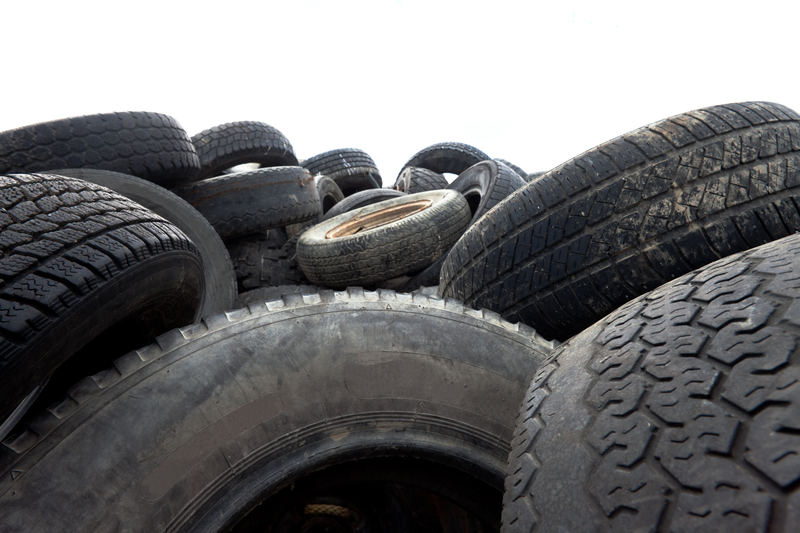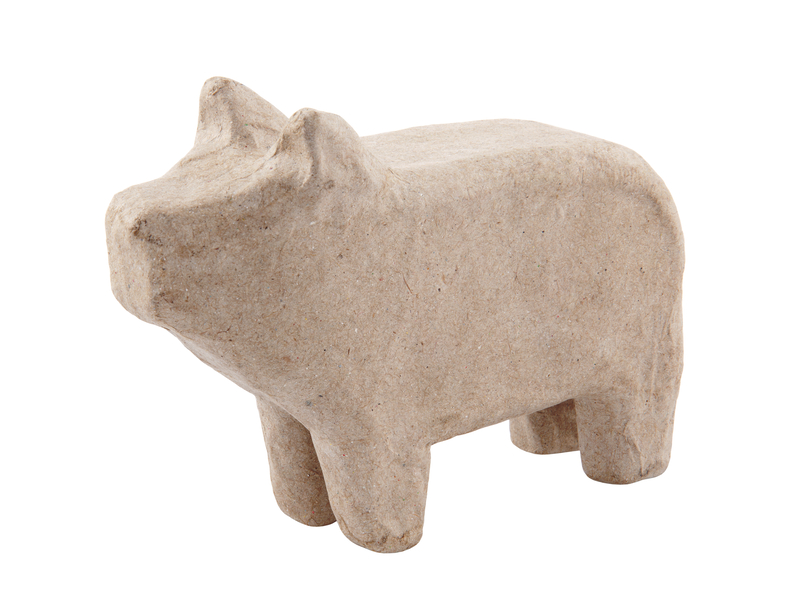How to Donate Usable Cookware Instead of Throwing It Away
Are your kitchen cabinets overflowing with pots, pans, and utensils you no longer use? Donating usable cookware is an excellent way to reduce waste, help families in need, and give your gently used kitchen supplies a second life. Rather than piling old cookware in the trash, learn how to donate cookware responsibly and make a meaningful difference in your community.
Why Choose to Donate Cookware?
Every year, tons of perfectly usable kitchen items end up in landfills. This contributes to unnecessary waste and environmental harm. By opting to donate kitchenwares like pots, pans, and bakeware, you offer someone else the chance to create homecooked meals, save money, and reduce their environmental footprint. Here are several compelling reasons to choose donation over disposal:
- Reduce landfill waste: Donating keeps usable items out of the dump, extending their life and lessening landfill overflow.
- Help families and individuals in need: Many charitable organizations rely on cookware donations to support those who cannot afford new items.
- Environmental impact: Manufacturing new cookware consumes resources--donation cuts back on demand and saves energy.
- Declutter your space: Make your kitchen more organized by rehoming kitchenware you don't use.
- Tax deductions: In many regions, donating goods to registered charities may qualify for a tax deduction--consult your local regulations.

How to Prepare Your Cookware for Donation
Before rushing to the nearest donation center, ensure your items are ready for a second home. Well-prepared donations are far more likely to be accepted and appreciated by recipients.
1. Evaluate Defects or Damage
Inspect your gently used cookware for serious cracks, rust, loose handles, or missing parts. Only donate cookware that is safe and functional. Minor scratches on nonstick pans or gentle wear on pots are typically okay, but avoid donating severely damaged or unsafe items.
2. Clean Thoroughly
Wash every item inside and out, removing grease, burnt residue, and any lingering food particles. A good cleaning signals respect for the recipient and increases the likelihood your donation will be kept rather than discarded.
- Soak stubborn stains with baking soda and vinegar
- Make sure handles are tight and attached securely
- Polish stainless steel and scrub cast iron as needed
3. Gather Sets When Possible
If you have matching pots, lids, and pans, keep them together. Many donation centers prefer full or partial sets, but they'll also accept single items in good condition.
4. Check for Local Donation Guidelines
Not all organizations have the same requirements or accept the same cookware materials (e.g., Teflon, aluminum, or ceramic). Some places may not accept certain nonstick items or specific brands, so it's wise to check their cookware donation guidelines before dropping off your kitchenware.
Where to Donate Usable Cookware Locally
There are a variety of places to donate kitchen supplies and household goods. Here's where to start:
- Thrift Stores and Charities: Goodwill, The Salvation Army, and Habitat for Humanity's ReStores all accept kitchenware donations. Call your local branch to check which items are needed.
- Shelters and Transitional Housing: Homeless shelters, women's shelters, and refugee resettlement organizations often distribute donated cookware directly to those setting up a new life.
- Community Centers and Food Banks: Community kitchens and food banks may take kitchen tools for cooking classes, events, or direct distribution.
- Churches and Faith-Based Groups: Many run outreach programs and accept gently used kitchen items.
- Online Platforms: List cookware on local freecycle groups, Buy Nothing groups on Facebook, or Craigslist under the "free" or "household" sections.
- Kitchen Starter Kits Programs: Some nonprofits assemble starter kits for individuals leaving homelessness or foster care. Search for "kitchen starter kit donation" in your area.
Specialized Donation Opportunities
Look for donate cookware near me online--many large cities have unique programs and seasonal donation drives that focus on supporting local families and organizations in need. Additionally, some eco-friendly companies partner with charities to redistribute quality used cookware.
How to Donate Cookware Online
Donating cookware online is another effective way to keep your usable cookware out of landfills. Here's how:
- Check local giving groups: Freecycle, the Buy Nothing Project, and Nextdoor are excellent resources.
- List on marketplace platforms: Create a listing with clear photos and descriptions on Facebook Marketplace or Craigslist, indicating items are free to a good home.
- Donor-to-recipient programs: Some national charities allow you to mail gently used housewares to a central collection point for redistribution.
Tips for Online Giving
- Be honest about the condition of each pot, pan, or utensil.
- Specify if you're offering for pickup only or willing to ship.
- Communicate clearly and promptly with interested parties.
- Ensure cookware is clean and safe for the new user.
Cookware Donation: Accepted Items and Restrictions
Most organizations gratefully accept the following gently used kitchenware:
- Pots and pans (nonstick, stainless, cast iron, etc.)
- Bakeware such as cookie sheets, muffin tins, and cake pans
- Cooking utensils--spatulas, ladles, whisks, spoon sets
- Mixing bowls, colanders, and small kitchen gadgets
However, most charities will not accept items that are:
- Broken, damaged, or missing parts (such as lids or handles)
- Heavily rusted, warped, burnt, or irreparably dirty
- Items with deep scratches on nonstick surfaces (for health reasons)
- Large appliances or specialty items (unless specifically requested)
Always review the policies of your chosen donation center online or call ahead to ensure your items meet their requirements.
Creative Ways to Rehome Your Cookware
1. Host a Kitchenware Swap
Invite friends, family, or neighbors to bring their gently used cookware and kitchen gadgets for a swap event. It's a fun, sustainable way for everyone to refresh their kitchen setups--plus, any leftover items can then be donated collectively to a local shelter or charity.
2. Support Local Community Initiatives
Look for grassroots projects that support low-income families, recent immigrants, or college students. Many small organizations will gladly accept cookware donations and put them directly into the hands of those who need them most.
3. Donate to Cooking Classes or Schools
Vocational programs, culinary schools, and after-school enrichment classes frequently seek donations of usable kitchen equipment for students learning essential life skills.
Frequently Asked Questions About Donating Kitchenware
Q: Can I donate cookware with light scratches or stains?
A: Yes! Minor cosmetic issues are fine as long as the item is clean and fully functional. Avoid donating anything chipped, severely dented, heavily warped, or unsafe to use.
Q: What if my donation includes nonstick pans?
A: Many charity shops accept nonstick pans if the coating is intact and not badly scratched. When in doubt, always call ahead, as some have concerns about the wear and safety of older nonstick finishes.
Q: Can I get a tax write-off for donating cookware?
A: Possibly. If you donate to a registered nonprofit, request a receipt. Consult your local tax authority or a professional for advice about claiming charitable donations.
Q: What's the best way to package my donation?
A: Pack pots, pans, and utensils in sturdy boxes or bags to keep sets together and protect them from damage during transport. Tape lids to pots and wrap fragile items in newspaper or towels.
Q: Should I include instructions or recipes with my cookware donation?
A: It's a thoughtful touch! Simple printed guides or favorite recipes can inspire recipients to cook healthy meals and better use the cookware you're passing on.
How Donating Usable Cookware Benefits the Planet
When you donate old pots and pans instead of throwing them away, you actively participate in the circular economy--keeping products in use and reducing demand for new manufacturing. The environmental benefits of donating kitchen cookware include:
- Conserving energy and raw materials
- Reducing greenhouse gas emissions from landfills
- Lessening the need for mining, smelting, and shipping of new metals and coatings
- Encouraging community sharing and resourcefulness

Step-by-Step: How to Donate Your Cookware
- Sort: Pull out pots, pans, kitchen tools, and bakeware in good shape.
- Clean: Wash and dry each item thoroughly. Tighten screws, handles, and knobs if needed.
- Group: Keep matching sets and lids together; make a note if any lids are missing.
- Research Charities: Search for local or national organizations accepting kitchenware donations and check their requirements.
- Contact: Call ahead or visit the website to confirm they can accept your specific items.
- Pack and Deliver: Carefully pack items and drop them off at the designated location or arrange for pickup if available.
- Request a Receipt: If you plan to claim a tax deduction, ask for a donation receipt.
Conclusion: Giving Cookware a Second Life
Choosing to donate usable cookware instead of throwing it away is a simple, sustainable action with lasting positive impact. Not only do you reduce clutter and prevent waste, but you also help families, students, and community organizations access affordable and functional kitchen tools. By making it a habit to pass along kitchenware and other household items, you foster a spirit of sharing and resourcefulness--one pot or pan at a time.
Before tossing that pan in the trash, consider the difference your cookware donation can make. With a little effort, you can extend the life of useful goods, protect the planet, and support someone's journey towards nourishment and independence.
Resources and Additional Reading
- Goodwill Donation Guidelines
- The Salvation Army: Donate Goods
- Buy Nothing Project Local Groups
- The Freecycle Network
Ready to pass along your gently used cookware? Take the small step to donate your kitchen items today and help your community thrive!



